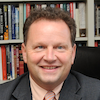
- This event has passed.
Webinar: Working with Vulnerable Communities on Climate Action through Nonformal Higher Education and Peacebuilding
July 7, 2021 @ 1:00 pm - 2:00 pm EDT
FreeNonformal higher education provides an avenue to bypass the rigidity of hierarchical structures and prescribed norms within formal education, which offers opportunities to assist marginalized communities with climate action through peacebuilding and conflicting solving through education. Our aim is to identify the general structure and forms that nonformal higher education can take and how they can assist vulnerable populations in sustainability efforts globally. We will inspect how the inclusion of nonformal higher education, with real-life learning objectives and support, can aid students to endure hardships, such as environmental justice efforts. As nonformal higher education takes many forms, we will explore some of the many structures and pedagogical tools that instructors incorporate in the classroom to assist in competencies, community building, and knowledge acquisition. Additionally, we will explore pedagogies relevant and useful for vulnerable migrant populations, who have a lower capacity to adapt to climate change, and display how this education practice can serve as a tool of sustainability and revitalization for motivation, socialization, cross-cultural exchange, and more.
Subsequently, we will examine how nonformal higher education of climate action intertwines with conflict resolution and peace building (LCRP) initiatives as participant learners combine conflict resolution with literacy and numeracy (Carr-Hill et al., 2007). Branching from the work of Galtung, Gene Sharp, and other peacebuilding theorists, we will explore how nonformal higher education systems can harness student aspiration with peacebuilding processes to active learning. Based on practice-based experience, we will share an experience of using nonformal higher education with the United Nations. Viewers will gain a sense of what qualifies as nonformal higher education, how it correlates and works in conjunction with peacebuilding strategies, and examples of how these tools are implemented to aid vulnerable communities combatting climate change.
For members: Watch on demand For members: archived webinars on demand Upcoming webinars
Presenters
 |
Dr. Brittany Foutz, Co-Director of RCE Salisbury / Faculty Department of Conflict Analysis and Dispute Resolution, Salisbury University Dr. Brittany Foutz is a Faculty member of the Department of Conflict Analysis and Dispute Resolution at Salisbury University. She teaches International Law and various United Nations courses with the Salisbury University Department of Political Science and the Honors College. Dr. Foutz is, also, a Senior Research Fellow and Trained Mediator at the Bosserman Center for Conflict Resolution in Salisbury, Maryland. Dr. Foutz’s research interests include international law, transitional justice, reparations, the International Criminal Court, and human rights and the rule of law. Her dissertation addresses how the implementation and use of reparation mechanisms affects the satisfaction of child soldier and sexual violence victims of the International Criminal Court (ICC), the world’s court. Dr. Foutz is, also, the Co-Director of Salisbury Regional Centre of Expertise, a location acknowledged by the United Nations Educational, Scientific and Cultural Organization and United Nations University. This United Nations location focuses on conflict prevention and creative problem-solving. Dr. Foutz has been elected to be on the United Nations Americas Governance Committee and United Nations Americas Strategic Planning Support Committee, and Leader of the United Nations Americas Task Force on Education. |
 |
Dr. Brian Polkinghorn, Co-Director of RCE Salisbury / Faculty Department of Conflict Analysis and Dispute Resolution, Salisbury University Brian Polkinghorn, Ph.D. is a Distinguished Professor of Conflict Analysis and Dispute Resolution at Salisbury University. In 2000 he designed in launched the Department of Conflict Analysis and Dispute Resolution (CADR) and became the Executive Director of the Bosserman Center for Conflict Resolution (BCCR) at Salisbury University. He has worked in the conflict intervention field since 1985 as a mediator, arbitrator, facilitator, trainer, researcher, academic program and curriculum developer, conflict coach, dispute systems designer and ombudsman. He has published over 50 articles, book chapters and books and has been the (co)principle investigator on several dozen research projects. He has practiced in a dozen countries primarily in the areas of environmental policy dispute intervention, labor-management, cross border cooperative enterprises, leadership development and support of peace talks. Brian is an alum of the Carter School, George Mason University, the Program on the Analysis and Resolution of Conflicts (PARC), Syracuse University and was a Fellow with the Program on Negotiation (PON), Harvard University Law School. Brian was a National Fellow with the US Environmental Protection Agency, a United States Presidential Fellow, the University System of Maryland Wilson Elkins Professor and a Senior American Fulbright Scholar with the Evens Program in International Conflict Resolution and Mediation at Tel Aviv University as well as a Fulbright Ambassador. |
 |
Brittany Bursa, Member of RCE Salisbury / Master’s Student, Cambridge University Brittany Bursa, B.A. began her pursuit of educational reform as she graduated from the Salisbury University Honors College with a BA in English Secondary Education, winning the John and Mary-Claire Roth Honors Thesis Prize in Spring of 2017 for her work on limiting educational disparities in the USA. Subsequently, she completed a TOEFL certification course, then worked with pre-service university students in Brazil for two years while on a Fulbright English Teaching Assistant Fellowship and volunteered with organizations such as EdUSA, the Regional English Office, the US Embassy, and the Access Program. Determined to gain a broader expanse of global knowledge, she began to intern for the United Nations Institute for Training and Research where she created desk reviews focusing on the African continent and topics ranging from cyber-mercenaries to police insecurities. Additionally, she regularly discussed social activism and current world dilemmas in a think tank manner with an international cohort as an Effective Altruism Fellow. She continues to dig into the issues of knowledge, power, and politics as she currently completes her Masters of Philosophy in Education at the University of Cambridge and actively engages with research work through the Cambridge Development Initiative and Global Research and Consulting Group. |
 |
Dr. Arun Gandhi, Director, M.K. Gandhi Institute for Nonviolence Arun Gandhi was born in 1934 at the Phoenix Colony outside of Durban South Africa. He is the fifth grandson of Mohandas (also known as Mahatma) and Kasturba Gandhi. He is a Indian-American socio-political activist whose passion and life work has been to spread the lessons his grandparents taught him about nonviolence. For more than 20 years Arun has been the Senior Practitioner and Spiritual Guide at the Bosserman Center for Conflict Resolution at Salisbury Univeristy. Arun call himself a “peace farmer” who has taught students how to plant one seed of peace at a time. |